detail profile vittorio de seta
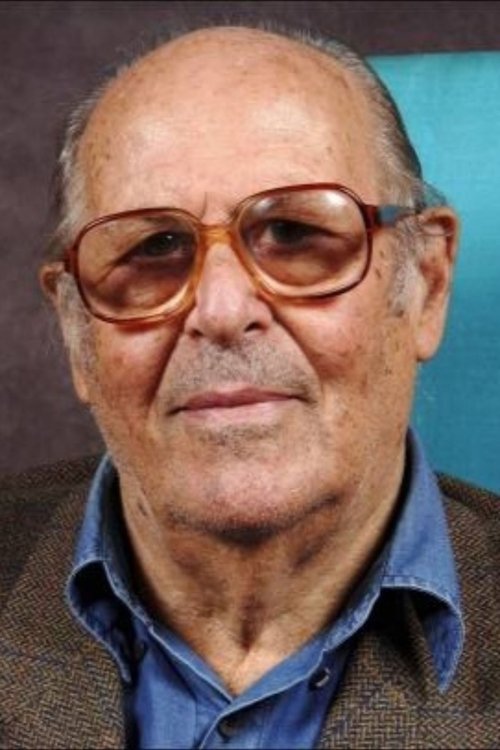
Riwayat Hidup
Vittorio De Seta (15 October 1923 – 28 November 2011) was an Italian cinema director and screenwriter, considered one of the Italian cinema's great imaginative realists of the 1960s.
De Seta made ten short documentaries between 1954 and 1959, before directing his first feature-length film, Banditi a Orgosolo (Bandits of Orgosolo).
His early documentaries focus on the everyday life of many of Sicily's poorest workers, and are notable for their lack of voice-over narration, quiet mood, and striking color.
Info Pribadi
Peran Yang Di Mainkan Vittorio De Seta
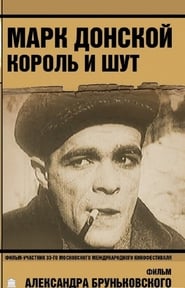 Documentary about the Soviet film director...
Documentary about the Soviet film director...Mark Donskoy, King and Jester 2011
Documentary about the Soviet film director and his changing fortunes during the Stalin years.
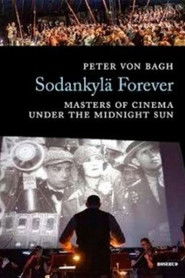 The Midnight Sun Film Festival is...
The Midnight Sun Film Festival is...Sodankylä Forever 2010
The Midnight Sun Film Festival is held every June in the Finnish village of Sodankylä beyond the arctic circle — where the sun never sets. Founded by Aki and Mika Kaurismäki along with Anssi Mänttäri and Peter von Bagh in 1985, the festival has played host to an international who’s who of directors and each day begins with a two-hour discussion. To mark the festival’s silver anniversary, festival director Peter von Bagh edited together highlights from these dialogues to create an epic four-part choral history of cinema drawn from the anecdotes, insights, and wisdom of his all-star cast: Coppola, Fuller, Forman, Chabrol, Corman, Demy, Kieslowski, Kiarostami, Varda, Oliveira, Erice, Rouch, Gilliam, Jancso — and 64 more. Ranging across innumerable topics (war, censorship, movie stars, formative influences, America, neorealism) these voices, many now passed away, engage in a personal dialogue across the years that’s by turns charming, profound, hilarious and moving.
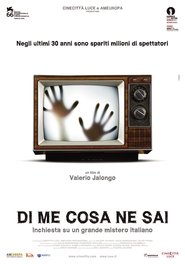 Until the 1970s Italian cinema dominated...
Until the 1970s Italian cinema dominated...What Do You Know About Me 2009
Until the 1970s, Italian cinema dominated the international scene, even competing with Hollywood. Then, in just a few years, came its rapid decline, the flight of our greatest producers, a crisis among the best writer-directors, the collapse of production. But what are the true causes and circumstances of this decline? In an attempt to provide an answer to this question, Di Me Cosa Ne Sai strives to depict this great cultural change. Begun as a loving examination of Italian cinema, the film transformed into a docu-drama that alternates between interviews with the great names of the past and fragments of cultural and political life of the last 30 years. It is a travel diary that shows Italy from north to south, through movie theatres; television-addicted kids; Berlusconi and Fellini; shopping centers; TV news editors; stories of impassioned film exhibitors and directors who fight for their films; and interviews with itinerant projectionists and great European directors.
 By tracing the places of Vittorio...
By tracing the places of Vittorio...Détour De Seta 2005
By tracing the places of Vittorio De Seta films and looking for people who had contact with him, as the Cozzo Disi sulfur miners, Ganzirri swordfish fishermens and shepherds who attended in drama Banditi a Orgosolo, the documentary focuses on great change started in local cultures of the Southern Italy from 1945. The film includes an interview with De Seta, conversations with the film directors Luciano Tovoli, Franco Maresco, Gianfranco Pannone, writers Vincenzo Consolo, Goffredo Fofi, Eugenio Turri and the critic Marco Gazzano. Set in Calabria, Sardinia and Sicily, the film was shot in 35mm film and digital, contains stock footage and images taken by De Seta.
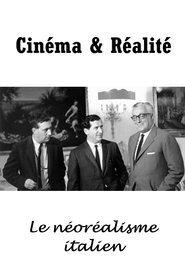 In this documentary giants of italian...
In this documentary giants of italian...Cinéma et Réalité 1967
In this documentary, giants of italian cinema such as Rossellini, De Sica, Fellini and Zavattini talk about the importance of cinema after WW2, and about huge moments of social rebellion. This movie gives the floor to the creators of italian neorealism.
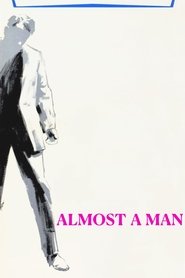 A young writer descends into madness...
A young writer descends into madness...Almost a Man 1966
A young writer descends into madness. Alienated, neurotic, and plagued by guilt, Michele retreats from reality, loses interest in work, and comes to the brink of suicide before being sent to an asylum for shock therapy. Escaping from the asylum, Michele returns to his boyhood home, where he learns the reasons for his present mental state.
 A Sardinian peasant is implicated in...
A Sardinian peasant is implicated in...Bandits of Orgosolo 1961
A Sardinian peasant is implicated in the murder of a policeman and, although innocent, he doesn’t give himself up, lacking faith in the judicial system and fearing that he may lose his sheep while awaiting trial. He leaves for the mountains with his brother but life is difficult and his flock dies. Returning to the town he discovers his family in abject poverty. He procures a gun and, forced by his social predicament, resorts to banditry.
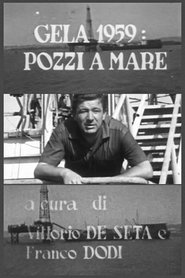 The subsea well constructed in Gela...
The subsea well constructed in Gela...Gela 1959: Pozzi a mare 1960
The subsea well constructed in Gela in 1959 by Eni was the first of its kind in Europe. The facility consisted of two interdependent complexes: a steel platform on the sea floor and a support ship. The very viscous oil gushed from the Sicilian land to flow to collection centers.
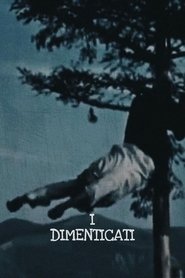 Vittorio De Seta travels to Alessandria...
Vittorio De Seta travels to Alessandria...The Forgotten 1959
Vittorio De Seta travels to Alessandria del Carretto, a small town in the province of Cosenza, to capture a unique celebration known as the “Feast of Silver.”
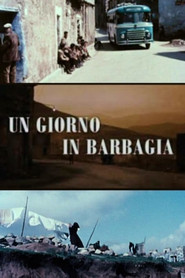 Against the background of flocks of...
Against the background of flocks of...A Day in Barbagia 1958
Against the background of flocks of sheep at pasture, mules walking down unpaved roads, tractors in the fields, and isolated figures in a deserted village, a caption explains that Barbagia is a vast region in Sardinia; Orgosolo, Oliena and Mamoiada are villages of shepherds and the men spend most of the year far away, with their flocks. This is why the houses and the children are entrusted to the women, who cut the wood, work the fields and prepare bread, shepherds’ bread.
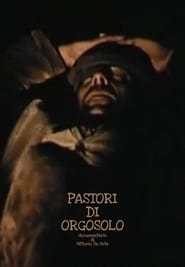 The striking landscapes of rural Sardinia...
The striking landscapes of rural Sardinia...Orgosolo’s Shepherds 1958
The striking landscapes of rural Sardinia provide the backdrop to this lyrical look at the hardscrabble lives of the region’s shepherds in winter.
 Filming amid the flaxen wheat fields...
Filming amid the flaxen wheat fields...Golden Parable 1955
Filming amid the flaxen wheat fields of Sicily, Vittorio De Seta documents the everyday rituals of farmers during harvest time.
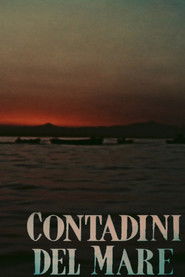 Sicily Granitola 1955 At the first light...
Sicily Granitola 1955 At the first light...Sea Countrymen 1955
Sicily, Granitola, 1955. At the first light of dawn, the fishermen set out in their boats for open water, timing the rhythm of their oars to murmured chants. They set their nets in the sea, regulate the cords, organize the boats in a square. The men’s work becomes increasingly harder as the tuna are hoisted onto the boats, wriggling, beating their tails until death arrives and the water is tinged with blood.
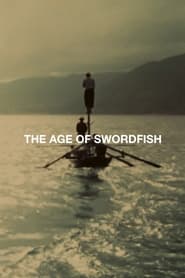 A short anthropological documentary from 1954 Director...
A short anthropological documentary from 1954 Director...The Age of Swordfish 1955
A short anthropological documentary from 1954. Director De Seta was fortunate enough to document swordfish fishing; by 1956 it no longer existed.
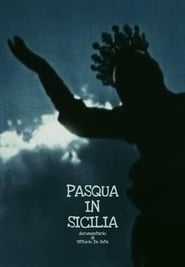 A short film which retells the...
A short film which retells the...Easter in Sicily 1955
A short film which retells the story of Jesus Christ's death and resurrection.
 The first light of dawn The...
The first light of dawn The...Islands of Fire 1955
The first light of dawn. The sound of a boat and the screech of birds fill the wide expanse of sea. Black rocks emerge from the water, the “sciara” – the volcanic scoria – of Stromboli, the underwater sulfurous emanations, the layers of reddish rock eroded by the sea. The roar of the volcano can be heard, the flames and the liquid lava are thrown skyward. As nature unleashes itself, the fishermen row toward the shore, the sheep stray and the women return home.
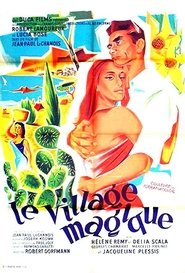 Robert and his fiance Lucienne were...
Robert and his fiance Lucienne were...Magic Village 1955
Robert and his fiancée Lucienne were due to go on vacation together to a tented village in Sicily. Robert is forced to postpone his trip and only joins Lucienne a few days later, taking advantage of the departure of a following group. During the train journey, he befriends Thérèse, a young Sicilian living in Paris, who wants to make a pilgrimage to the land of her ancestors. Lucienne is away from the camp when Robert arrives, so he can continue to see Thérèse, and little by little they discover that they love each other. When Lucienne returns, an explanation and reconciliation take place, then Robert changes his mind and, with the vacations over, leaves Lucienne alone to live in Sicily with Thérèse, who wants to stay in her family's homeland.
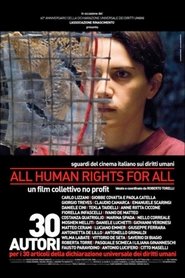 Collective film for the 60th anniversary...
Collective film for the 60th anniversary...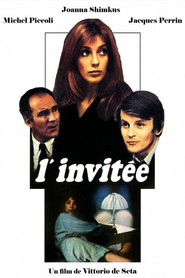 When her husband returns from his...
When her husband returns from his...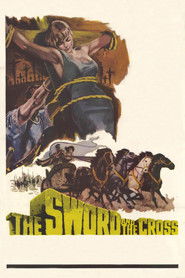 Sold as slaves to a wealthy...
Sold as slaves to a wealthy...